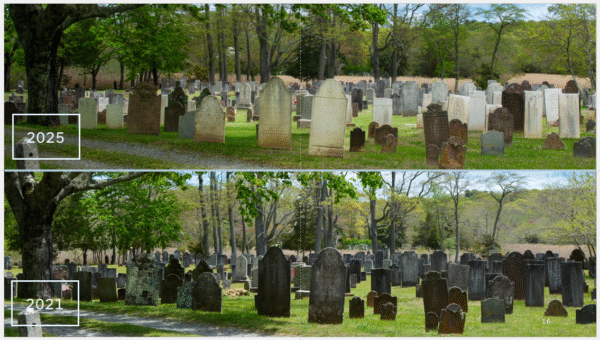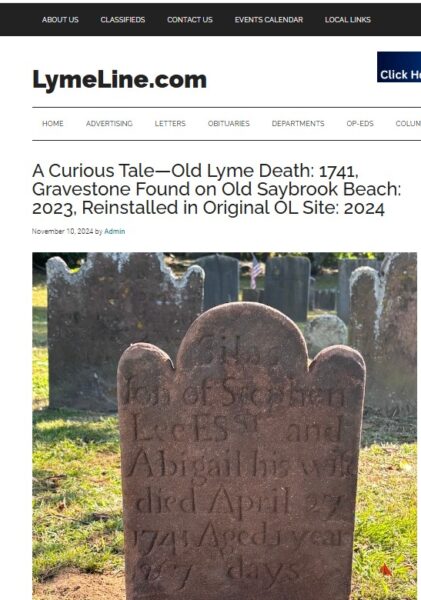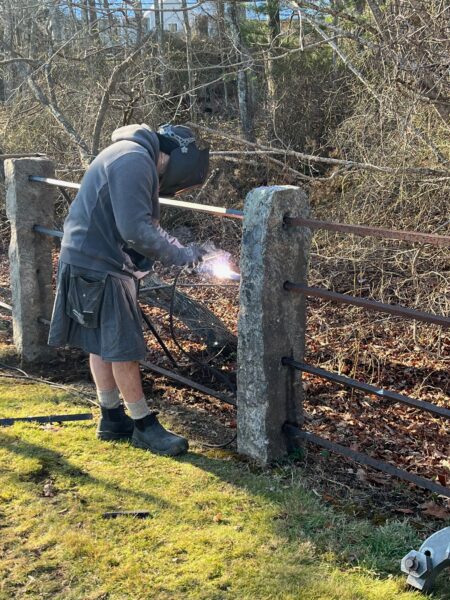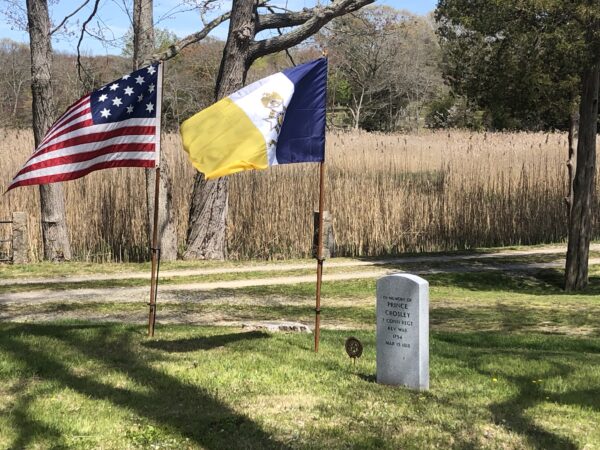OLCA NEWS
Witness Stones at Duck River Cemetery
Witness Stones placed beside the Duck River Cemetery’s gates on June 3, 2022, commemorate three African Americans and one Native American who labored in servitude nearby on Meeting House Hill (today’s Johnny Cake Hill). Small brass plaques installed flush with the ground honor the lives and contributions of Phyllis, Tantiphant, Salem Freeman, and Katherine Freeman.
Phyllis
Very little is known about Phyllis except that she was enslaved by Archibald Starr Greenfield, a mariner who lived on Meetinghouse Hill. A New London County Superior Court inquest to determine the cause of her death on January 28, 1758, found that the “Negro woman servant to Archibald Starr Greenfield of Lyme” died because “she had been poorly provided with proper clothing and bedding in freezing weather.”
Tantiphant
Tantiphant was indentured as a young man to John Lay 2nd in 1732 for a term of six years, one month, likely to provide agricultural labor on Lay’s large farm on Meeting House Hill. In 1734 Tantiphant shipped out, presumably as a deckhand, for Antiqua and St. Kitts on the sloop Elizabeth with Captain John Sears, a Lyme mariner. Witnesses at a court hearing described Lay’s reluctance to part with his servant, and Lay valued his loss at 30 pounds a year during Tantiphant’s absence. The court ordered Sears to pay John Lay 95 pounds for fraudulently acquiring his Indian servant.
Salem Freeman
Salem Freeman, son of Katherine Freeman, was born into hereditary slavery on Meetinghouse Hill in 1752 in the household of Henry Champion. Emancipated by the slave owner’s son Captain Henry Champion on June 5, 1780, Salem was set free at age 28, “in Consideration that ye Said Negro man Servant hath Served Faithfully and Conducted himself Dutifully.” The emancipation certificate refers to him as Salem Champion. Two decades later an inquest conducted after he died at his house on December 18, 1812, judged that the death was accidental. He is buried in Duck River Cemetery.
Katherine Freeman
Katherine Freeman, also called Kate, was enslaved by Henry Champion on Meetinghouse HIll. Nothing is known about her life except that she was baptized in 1741 during the Great Awakening revival movement. No emancipation certificate has been found, but at some point before, or perhaps after, her death, her surname changed from Champion to Freeman. She is buried beside her son Salem Freeman in Duck River Cemetery.
Witness Stones Old Lyme seeks to expand the understanding of local history and honor the humanity and the contributions of those formerly enslaved in the community. Witness Stones placed between the Sill Lane green and the Duck River Cemetery gates include the names of enslaved individuals, along with details about their lives and circumstances derived from land records, emancipation certificates, and other historical documents. An interpretive sign installed on the lawn of the Old Lyme Phoebe Griffin Noyes Library and the Witness Stones Old Lyme website provide a map and additional information
